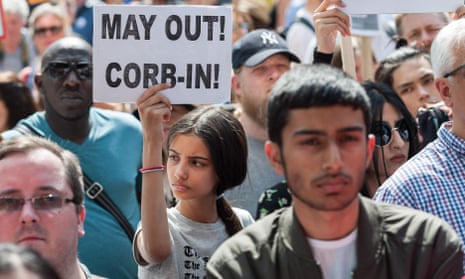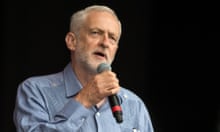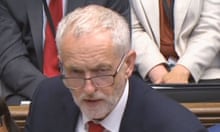Theresa May did her best to sound as if she had no intention of going anywhere on Wednesday, as she defended the slender programme laid out in her first – and probably her last – Queen’s speech. She tried to sound as if she had a purpose in holding on to power. But the vivid contrast between her beleaguered performance and the confidence and energy of a reinvigorated Jeremy Corbyn showed just where momentum in this new parliament actually lies.
But it’s one thing to sound upbeat, and to believe that victory is close at hand, and another to make it happen. So how could Labour force an election?
The classic route is to defeat the government on a vote. Technically it needs to be a vote of confidence, but a handful of other votes would do as well. The first opportunity to try to do that comes as early as next Thursday, at the end of the debate on the Queen’s speech. If Labour could defeat the government then – and if there is still no deal with the DUP, then that is theoretically possible – this would be the end not just for May but for her government.
Tory MPs are hoping that May can stagger on until at least 20 July when they can head off for their summer holidays until late September. There is speculation that there may be a hasty transfer of power and a coronation at the party conference in October. But that would mean the new prime minister had neither a majority (like the old one) nor the slim personal mandate that comes from winning the most votes and the most seats. That means there would be more pressure for another general election.
In theory the Fixed-term Parliament Act makes it hard to call a snap election until the full five years are up. But that was plainly not the case in April, when May suddenly announced that after repeated denials, she did after all need to go to the country. After the result on 8 June – just two weeks ago, remember – Labour is itching for another go at winning a majority. It will be even less likely to oppose a demand for an early election than it was last time, when there was a good reason, and a constitutional case, for blocking it.
It won’t be easy to bring down the government, even though it is nine seats short of an overall majority. First, the DUP’s 10 MPs will be very reluctant to trigger another election that Corbyn’s Labour could win. Even if it can’t agree terms with the Tories, its most likely course is to adopt a strategy of policy by policy bargaining, with the threat of abstention held in reserve. That would make life hard but not impossible for the Tory whips. Only if the 10 DUP MPs voted with Labour, and Labour got all the opposition parties to vote with them, could the Tories lose. Not impossible, but very unlikely.
On the other hand, government business will be very very difficult, especially given the shifting alliances on Brexit. The so-called great repeal bill, the only big commitment in the government’s programme, is likely to be extremely vague. It will repatriate all the laws and regulations that have been made in Europe in the past 40 years into UK law, but there will be little detail. That will depend on the detail that emerges in negotiation. The government would like the Commons to give it a blank cheque by allowing the detail to be settled in so-called secondary legislation which MPs have little chance to scrutinise.
Labour would rightly see that as a dereliction of duty: it would open the prospect of the kind of bonfire of regulations that the Tory right dreams of. It looks as if the country will be blighted by the Tory catastrophe for a few months yet.









